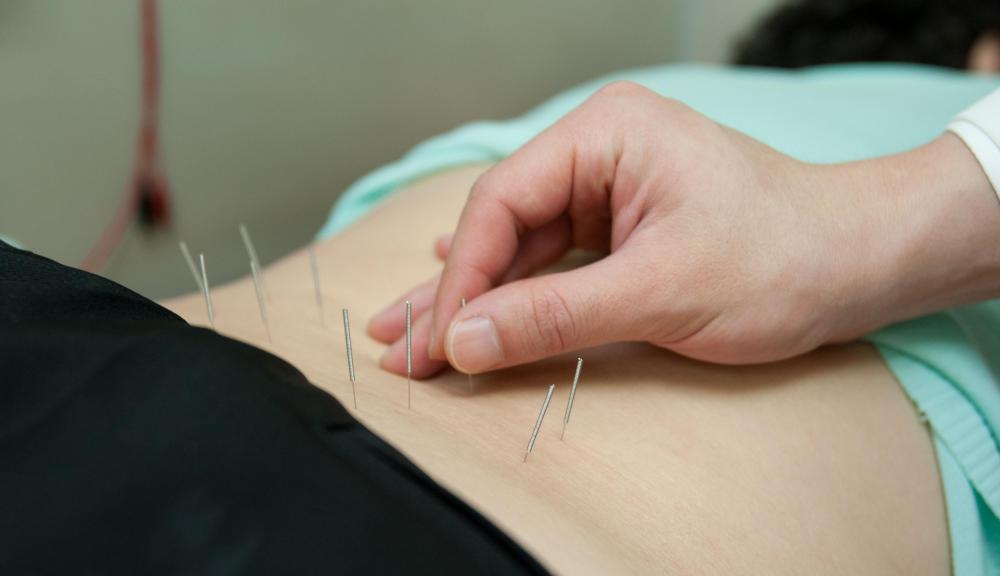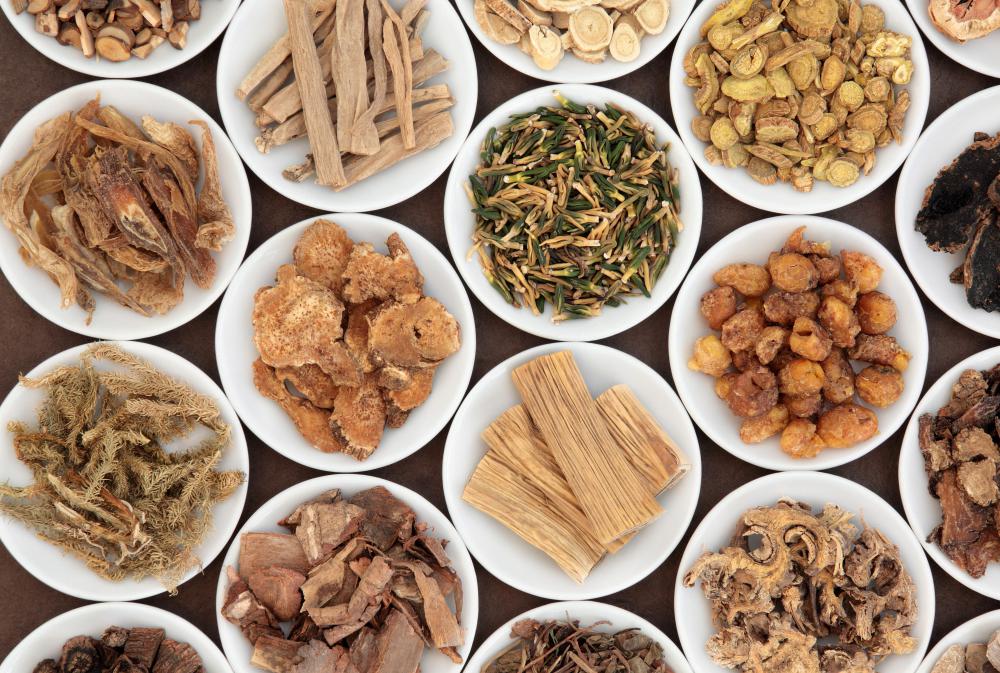At TheHealthBoard, we're committed to delivering accurate, trustworthy information. Our expert-authored content is rigorously fact-checked and sourced from credible authorities. Discover how we uphold the highest standards in providing you with reliable knowledge.
What Is the Difference between Chinese Medicine and Western Medicine?
The main difference between Chinese medicine and Western medicine is that Chinese medicine seeks to treat the body as a whole, while Western medicine focuses on the main problem area. The differences go deeper still and cover the philosophy of medicine, preventative action, diagnosis and treatment. Neither one is wholly right nor wholly wrong; instead they complement one another.
Traditional Chinese Medicine (TCM) is often used as a catchall term for Asian medicine. This includes practices from Korea, Japan and Vietnam. It owes its roots to Taoism’s beliefs in yin and yang as well as other religious belief systems such as ancient animism and shamanism. Western medicine owes its origins to ancient Greece, with the Middle East and Egypt before that. Its practices are rooted in science after a slow purge of religious beliefs.

A crucial difference between Chinese medicine and Western medicine is that Western medicine focuses solely on the body as an organism. Chinese medicine, on the other hand, as with other Asian practices, includes the soul or spirit as an integral element of the body. The Chinese, therefore, treat the entire body in a holistic manner in order to solve one ailment.

Chinese medicine views yin and yang like the two sides of the moon — one seen and one hidden in shadow. Different parts of the body are described as yin and others as yang. The body is also broken down into five phases or elements. These are wood, fire, earth, metal and water.
TCM also focuses its attentions on the functions of the body, as opposed to its anatomical structure. In Western medicine, the latter is more important. The Chinese divide the body into Qi, or functions, Xue, or blood, Jinye, or bodily fluids, and the Zang-fu, or organs. The practice describes channels to the limbs and joints as meridians.

In Western medicine, diseases and viruses are caused by bacteria, rogue cells and genetic disorders. A major difference between Chinese medicine and Western medicine is that TCM believes disease to be a kind of imbalance between its functions. These imbalances are put into patterns of disharmony and linked to six excesses. The excesses refer to symptoms of illness and are categorized as those of wind, cold and fire/heat, Dampness, dryness and summer heat are the remaining excesses.

Chinese medicines are herb- and therapy-based. The difference between Chinese medicine and Western medicine is that these treatments aim to activate whole systems rather than specific areas and troublesome elements. There are thousands of medicines available in China, many using animals, plants, herbs, trees and more. The processing of these medicines is called Pao zhi.

TCM also uses acupuncture, auriculotherapy and moxibustion as treatment methods. Acupuncture is the application of needles to meridian lines and other pressure points. Moxibustion is combined with acupuncture and is the application of heat to an affected area. Auriculotherapy is ear acupuncture.
AS FEATURED ON:
AS FEATURED ON:















Discussion Comments
I don't know how common the practice is, but there are some medical offices where both Western and Chinese medicine is practiced. These places have doctors trained in each discipline, so you can choose, and doctors can confer on individual patients.
I have heard many patients come into their physician's Western medicine practice and ask him to provide them with alternative medicine, Eastern medicine or Chinese medicine treatments. These patients then accuse the doctor of refusing to have an open mind when he says he can't accommodate them.
This is ridiculous, doctors can only treat patients the way the doctors have been trained. Asking a Western taught doctor to consider Chinese medicine cures makes no sense. Your Western doctor may see benefits in holistic healing, but it is not his place to prescribe herbs and holistic treatments.
If Chinese (Asian) medicine and Western medicine truly complemented one another in medical practices then I imagine we would find that doctors would be even better able to treat illness. Unfortunately, the two sides are more often in competition with one another--Traditional Chinese Medicine vs Western medicine.
Many doctors who practice Western medicine are unwilling to see any of the benefits of Asian medicine, and the same can be said in reverse. However, in the last decade, I have noticed more doctors who are open to listening to medical ideas and practices other than the ones they have been taught.
Post your comments